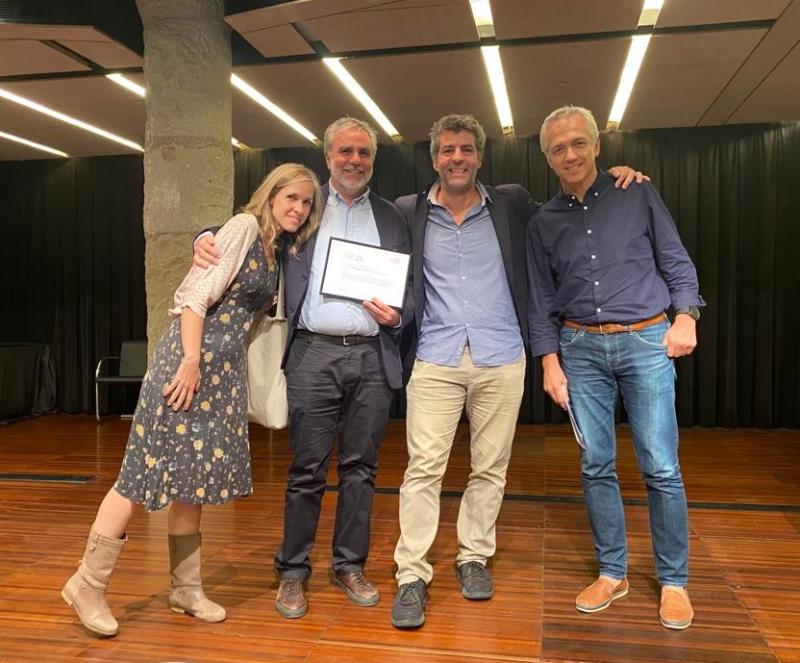Bioethics grant for a project to improve communication between neurological patients and scientists-in-training
Bioethics grant for a project to improve communication between neurological patients and scientists-in-training

A research project between the Institute of Neurosciences of the Universitat Autònoma de Barcelona (UAB) and the Institut Guttmann has received one of the Bioethics Grants awarded by the Víctor Grífols y Lucas Foundation. The aim of the proposal is to create a meeting point between students of the Master's in Neurosciences at the UAB and patients with neurological disorders in order to promote knowledge and empathy among scientists in training, as well as empowering patients.
The project, entitled "Neuroscience, philosophy and education: a meeting for patients with neurological lesions to discuss the disease with scientists in training", is led by Guillermo García, from the UAB Institute of Neurosciences, with the collaboration of Joan Vidal, teaching director of the Institut Guttmann; Bernat Torres, from the Department of Humanities at the Universitat Internacional de Catalunya and Marta Palacín, from the Department of Philosophy at the Universitat de Barcelona.
"A few years ago a survey was published asking people with spinal cord injury to list which advances in research would most improve their quality of life. Aspects such as maintaining posture and locomotion control came in significantly behind the recovery of manual dexterity, sexuality, pain reduction and sphincter control, among others. This raised the question: is science addressing the real problems of people with spinal cord injury?" explains García.
Pilot test
For the time being, three face-to-face meetings will be organised between the 40 students of the Master's in Neurosciences and three patients from the Institut Guttmann affected by traumatic spinal cord injury, stroke and multiple sclerosis, respectively. To encourage a participative and trusting atmosphere, the students will be divided into groups of 13 people. The neurologist will start the session by talking about the aetiology, symptomatology and pathology of the injury or disease, and then the patient will explain his or her experience. After that, a question and answer session will be opened with the students.
We not only aim to evaluate the degree of maturity and empathy of the students," says Vidal, "but also to design solutions in the event of detecting prejudices or attitudes that could go against the dignity of the person. The idea is also to serve as a pilot test to evaluate the possibility of implementing regular dialogue sessions between patients and Master's students, and that in the future it could be applied to studies in other fields, such as cancer or minority diseases.




